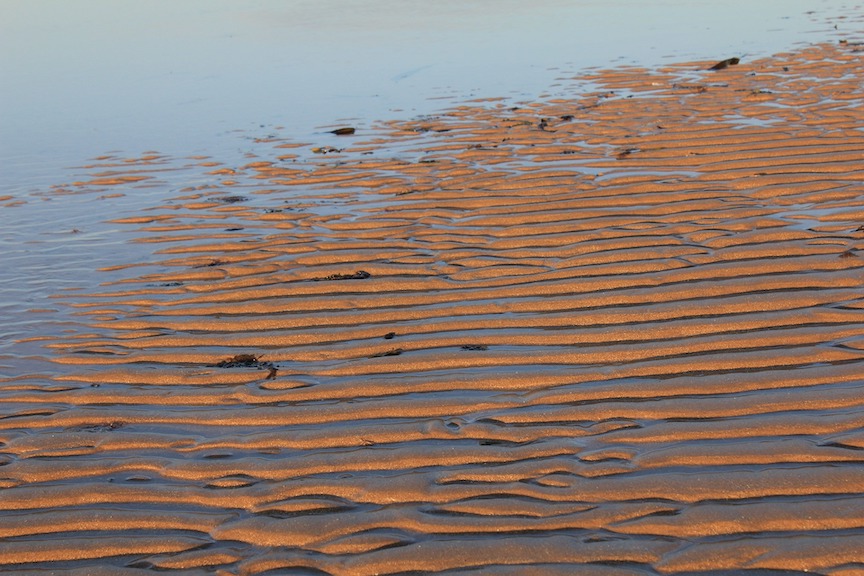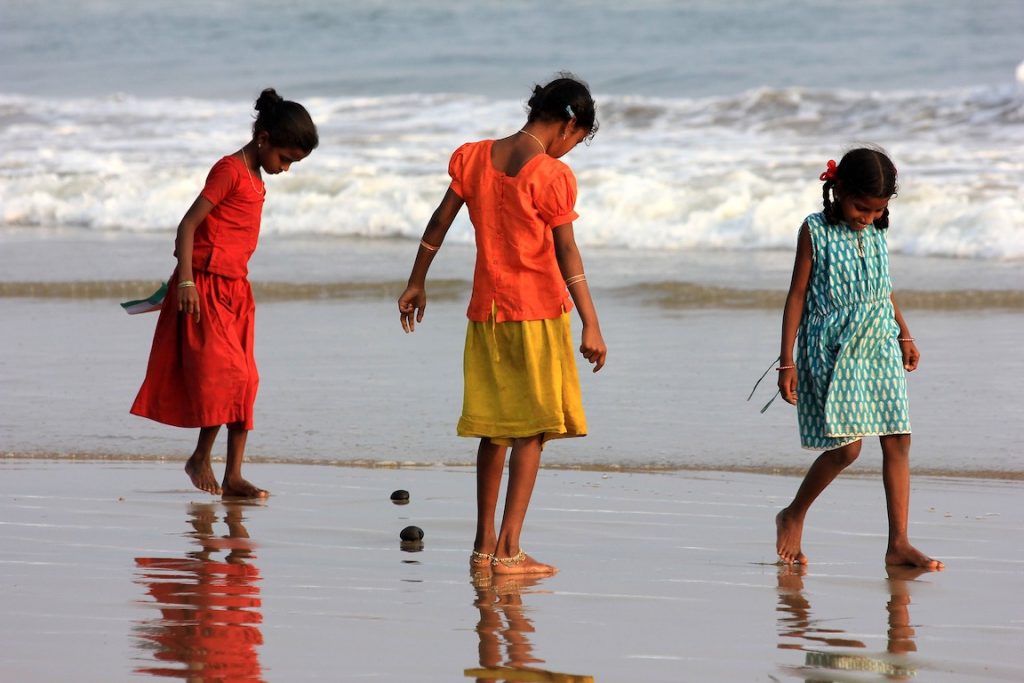Learning is a remarkably subtle, intricate and an intriguing process. For someone who is exceptionally perceptive and reflective, there could be moments when these subtle intricacies could unfold right in front of their (mind’s) eyes. This article by Ian Tymms seems to capture one such moment and expresses it in a brilliant poetic style.
[Note: A littoral zone refers to the area of the sea or a lake or a river close to its shores – ‘a transitional space’ between land and water. ]

From time to time a group of my Middle School English colleagues travel down to the Kindergarten to learn with and from our remarkable Kindergarten teachers. We use a protocol from their Reggio Emilia practice to explore student learning and become smarter teachers together.
One teacher presents a brief snippet of learning from their classroom: something they videoed; a piece of student learning; an observation they have made. The rest of us listen as the teacher explains what they have brought and why. Then each of us responds one at a time exploring the learning through the various lenses of the student’s perspective, pedagogical perspectives and conceptual understandings. Finally the teacher who has brought the snippet reflects on what they’ve heard and there is discussion about how to push learning forward for this student or class.
When we met recently, we were asked to direct our focus to a new learning space that was being established just outside the classroom. From where we sat on tiny stools, knees around our ears in the K2 classroom, we looked out through the glass doors to a low wooden fence that had been placed under the outside awning. A space had been established as wide as the classroom and encroaching about 4 meters out into the playground. We were told that the students had expressed a desire to have a space to paint and work creatively outside and so the teacher had worked with them to establish this zone beyond the classroom. Her question was “what next?” how best could she work with the students and the space to support student growth?
Various observations were made about the way students were exploring creativity and play and the final conversation explored the way the space that had been mapped out existed as a transitional space between the playground and the classroom. As Shakespeare would put it, neither fish nor foul, this space was neither classroom nor playground but open to the defining grammars of either or both.
We spent some time during this discussion exploring the implications of “play” and “creativity” and how ownership of the playful or creative space engenders agency and student engagement in the space and the learning. Students tend to own playgrounds, teachers tend to own classrooms. This ‘littoral zone’ between the outside and the inside was a playful space where learning might be defined differently and creativity fostered. The trick, we decided, was in continuing to support the students to take ownership of the space and in exploring ways to break down some of the expectations around what belonged inside and out.

Another piece of work that we looked at with our Kindergarten colleagues was about a snippet that was offered by a Grade 8 teacher. She began by showing us an entry ticket where the student apologised for being unable to explain the theme of a novel:
“I have no idea. I hope you are having a nice day Ms X.”
We then watched a video clip of the student having a conversation later in the class. The student described an event from his novel and then went on to reflect on what it might mean in terms of a theme. The explanation was a little off track for the novel and very tentative and the teacher was wondering what to do next.
Again our conversation turned to the agency of the student. This student had crossed from a pedagogical space where meaning was something he saw as coming from outside to something that he could start to explore and define for himself. The feeling of the group was that his efforts were to be celebrated and encouraged and that “getting it right” was a secondary concern at this point in his development. We discussed the need to keep supporting him as his identity changed from a person who is passively taught to a person who actively learns.
It strikes me that this tentative step into finding meaning is profoundly important for the development of this student. A spark to be protected, fanned and fed further. This is a student who has seen school and literacy as something that is done to him and over which he has very limited control. In this piece of video, he was taking early steps to take control of the process and learning is becoming something he can do for himself.
And the Littoral zone that fostered this learning? For this student I feel it was two things: a “just right” novel that engaged him and give him the confidence to run with his ideas; and a classroom that gave him the space and grace to explore and search for his own meaning.
Note: This article is an extract from a post that was originally published in January 2018 in Ian’s personal blog ‘alternative carparks‘. Please visit his blog for more articles, reviews, poems, musings and great insights into many things in life.
Ian Tymms, BA (Hons), Dip Ed, M.Ed teaches Middle School English and High School Theory of Knowledge at The United World College of South East Asia in Singapore. He has been involved in the UWCSEA Curriculum Articulation Project and in the adoption of the “Workshop” approach to teaching literacy in the Middle School at East.
Ian grew up in Australia and studied English literature and Psychology at Melbourne University, with postgraduate studies at The University of Tasmania and Deakin University. Ian’s Masters research focussed on school cultures.
At the end of Grade 12, Ian was offered a scholarship to complete a 32 day Outward Bound course and he went on to work for Outward Bound Australia as an instructor. From this experience, Ian has retained a lifelong interest in Outdoor Education and Hahnian ideals. Ian has a passion for the outdoors and spends many of his holidays hiking in Austria or sailing in Australia with his wife, Sharon, and their two children.

